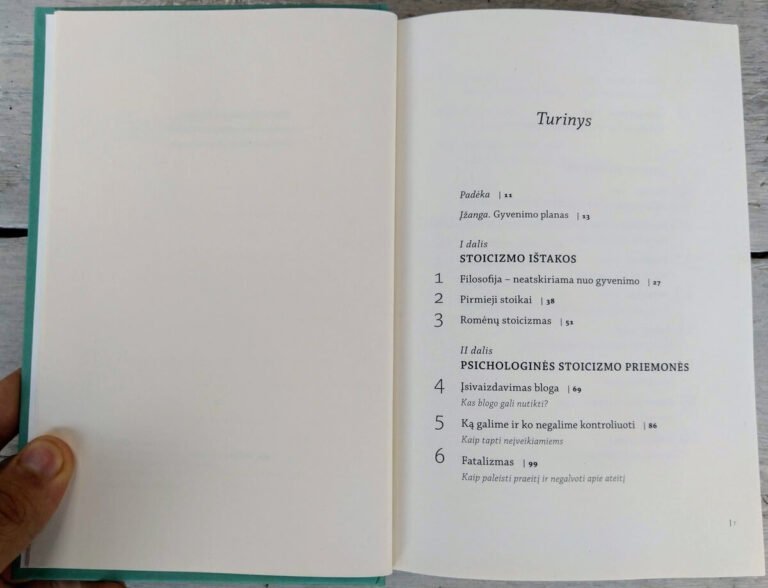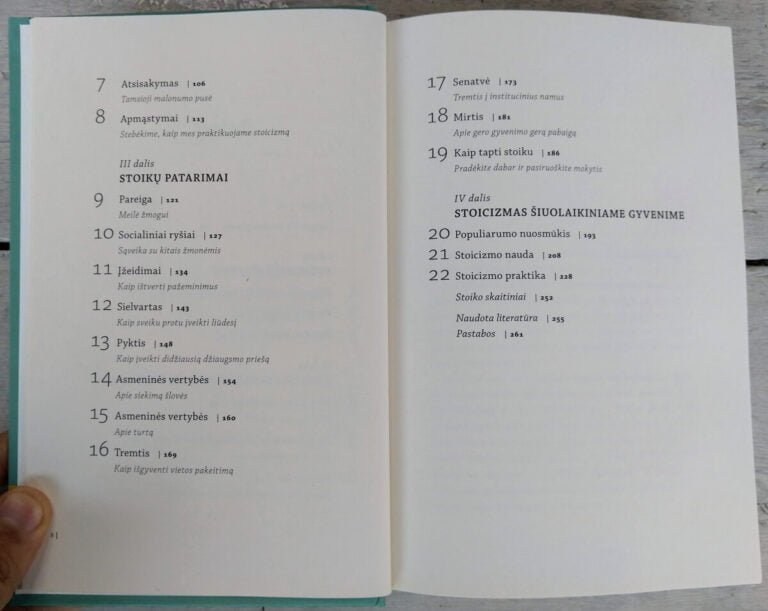Do you want to be satisfied with your life? Stoic philosophy is very similar to Buddhist philosophy - accept and be.
I read it The Good Life According to the Ancient Stoics by W. Irvine and let me summarize the book's most common ideas + a few observations from myself, as this is not the first book on Stoicism I have read.
Read on…

Summary of the book
Base: you are responsible for your own life
...And your life begins with attitude and habits.
You probably already know that Buddhists seek to renounce everything, both suffering and pleasure. Just be here and now and feel enlightenment, peace, satisfaction.
The Stoics thought similarly, but did not renounce pleasure: conquer suffering, enjoy life.
The Stoic approach consists of three parts:
- Physics - for a healthy body, a healthy soul.
- Virtues are the reason, purpose, and quality of your presence in this country. 1
- Ethics - your ability to learn, grow, be a good soul.
It is probably not fully achievable, but it is achievable.
Live healthy, do your job and make a quality impact on the state, learn and enjoy life.
(In my eyes, isn't virtue often forgotten? So many books have been written about taking care of your physique or ethics, but what about your impact on the state, citizens, neighbors?)
View: it can be worse
Everyone would probably agree that the worst people on earth are those who complain all the time. Their quality of life is improving every year, but they keep accusing the Landsbergs that their lives are improving "too slowly".
Those people who complain are stupid. Everyone can see and admit.
The ancient Stoics also repeated this: from a good life to forget that it was, it is worse.
So they suggest the following exercise daily: Negative visualization.
Imagine that the things and people you take for granted suddenly disappear. Your home, friends, family, even your workplace...
Feeling bad after such an exercise?
It's cool that you feel that way, because look— after all, you still have all this! It can calm you down and make you happy that your life is better than it could be.
This simple stoic tool will guarantee you a good life, you won't be like those idiots on Facebook.
(Sometimes people forget that the war is taking place literally 500 kilometers from us - less than from Vilnius to the sea and back. I'm talking, of course, about Ukraine.)
Pats: not everything depends on you, so what are you doing here?
…I'm paraphrasing a bit, but that's basically it. Here the Stoics suggest two methods:
- If it's not up to you - put up with it. Went for a walk and it started raining? Only a complete dumbass would get nervous about this. Sent a letter to a client with a lot of typos? Well, what are you going to do, you won't fix the letter anymore.
- Who owns - take responsibility. You didn't predict rain, you won't stay dry, but you can hide under a good tree and stay as dry as possible. You made mistakes in your letter, but you can start taking spelling courses to make fewer mistakes in the future.
As one Valtininka said: more important than the goal is the direction.
My thoughts
The title of the book is about the ancient Stoics, but did the citizens of Greece and Rome really teach what the modern Stoic books tell about?
Here, for example, if you read Seneca's Letters to Lucilius - you could see that Seneca liked reflections on this and that more than concrete advice; like informal conversations over a cup of coffee.
And reading books about Stoicism, which have so much history, so many themes...


…we look for easy methods to overcome adversity.
"Come on, just give me some tool!" I will take it, use it quickly and go on with my life!”.
Buddhists were lucky - their teachings survived in the form of training, meditation practices, monasteries, and teachings. (Whatever Vipassana Silence Camps - also came from Buddhists. And in these camps basically only practice, only a few minutes of theoretical lectures!)
What about the Stoics?
Where are the practical teachings of the Stoics, which would not only "give a tool", but also teach you how to live physically, virtuously, ethically?
Still, the book is worth reading if you don't know anything about stoicism yet. Buy here.
A decent hammer - which performs the forging function well. Are you performing your function?↩